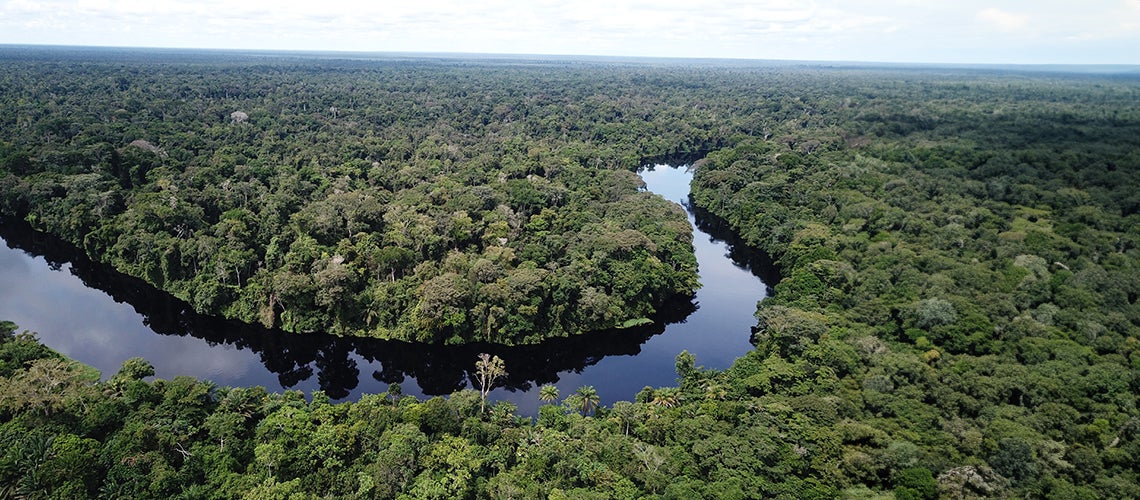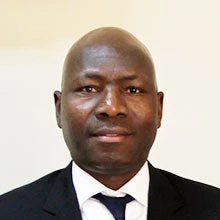 Three priorities to turn natural capital into wealth for the people of the Congo Basin
Three priorities to turn natural capital into wealth for the people of the Congo Basin
The question “top-of-mind” for most leaders and climate champions who will be gathering this week in Brazzaville for the Three Basin Summit, is how can the forests be turned into the wealth of nations? The three basins encompassing the Amazon, the Congo Basin and the Borneo – Mekong region, account for 80% of the world’s tropical forests and provide a home for two-thirds of the planet’s biodiversity. These areas play an essential role in sustaining people’s livelihoods, as well as regulating the global carbon balance.
On the continent, the importance of the Congo Basin forests cannot be understated. Often called the lungs of Africa, it is the largest carbon sink in the world. The Republic of Congo alone absorbs 1.5% of the world’s entire annual carbon emissions.
The Congo Basin spans across six countries - Cameroon, Republic of Congo, Gabon, Equatorial Guinea, the Democratic Republic of Congo, and the Central African Republic. These countries are struggling today with rising debt, high inflation, conflicts and climate change. Overall, growth in the region has been inadequate to reduce extreme poverty and create jobs. To respond to these intertwined challenges, countries will need urgently to diversify their economies and find innovative ways to meet their large development and climate finance needs.
Welcome to the Congo Basin
360 journey into the Congo Basin: https://wbgvr.org/congobasin

Yet, the Congo Basin only receives a fraction of climate finance compared to the Amazon or the Mekong Basin area. The Three Basin Summit provides a unique opportunity to recognize tropical forests as vital assets for global climate and biodiversity, and to link the countries’ development and climate priorities.
So, here are three priorities for Central African leaders, and partners need to keep in mind when charting a green, resilient and inclusive future:
1. Forests are under threat. Harnessing our forests is critical to end poverty on a livable planet.
The Congo Basin forests represent a global public good for the people whose livelihood depends on the forest, but also for the rest of the world. The World Bank Country Climate and Development Reports (CCDRs) for Cameroon and the Republic of Congo have highlighted that the countries rich ecosystems have not translated into economic wealth and are being threatened by climate change and unsustainable practices.
In Cameroon, changes in temperature, rain and droughts in these forests are putting people at a greater risk of increased poverty. However, the poverty rate could be reduced five-fold by 2050 from 15% to 3% if robust reforms and more climate investments were taken.
In the Republic of Congo, the forests contribute to $260 million in timber exports and store over 44 billion tons of carbon dioxide equivalent emissions. In rural areas, poverty could be cut by 40% by 2050 if more ambitious reforms to promote economic diversification and climate resilience were implemented.
2. A call for leveraging natural capital accounting.
Countries’ natural capital comprises of renewable assets such as forests, mangroves, fisheries, and land; and non-renewable assets including fossil fuels and minerals. While the Congo Basin countries have relied on oil and minerals in past and current development strategies, there is a need to better reflect the value contribution of natural capital of forests and ecosystem services into national accounting systems. This is a first step to help better manage, protect, and conserve forests through results-based climate financing, before reforming the forest sector and getting ready to participate in carbon markets.
This is why the World Bank is working together with partners including the Central African Forest Initiative (CAFI), the Climate Investment Funds (CIF) and regional partners such as the Congo Basin Partnership Facility and others, to establish a platform to both valorize the countries natural assets and harness sustainable climate financing to generate income for local communities, as well as contribute to the forest economy.
3. Putting people at the center of adaptation and climate action.
More than 75 million people live and depend on the rich biodiversity and ecosystem of the Congo Basin Forests. Putting people at the center of adaptation and climate action is not only key to neutralize the worst impacts of climate shocks, but it also empowers people to drive the change towards a green, resilient and inclusive transition.
This week, the Three Basin Summit hosted by the Republic of Congo, is an opportunity for the leaders and activists to jumpstart the journey towards a green, resilient, and inclusive future. It will require an all-hands-on deck approach with strong engagement from citizens, private sector, and government across all sectors and the global community. We can - and must - continue working together for this important mission.
This Blog was initially published in Les Dépêches de Brazzaville


Join the Conversation